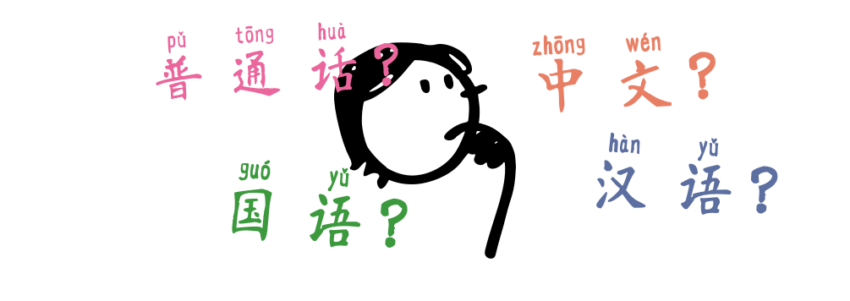What is the proper way to translate “Chinese language”?
中文 (zhōngwēn)
中文 Zhōngwén is a group of languages, including the most well-known one, Mandarin, as well as many other dialects. Therefore, everyone in China speaks 中文 Zhōngwén. Additionally, 中文 Zhōngwén is typically used to refer to the language as both written and spoken.
漢語/汉语 (hànyǔ)
汉语 hànyǔ is a language spoken by a specific ethnic group, the Han, who are the majority ethic group in China. There are also many minority ethnic groups in China. The languages of these ethnic minorities, such as Miao, Zhuang, and Manchu, are not considered 汉语 hànyǔ.
普通話/普通话 (pǔtōnghuà)
普通话 pǔtōnghuà, historically known as 官话 guānhuà, means “speech of officials.” Considering that approximately 1 billion people speak Chinese, it is impossible for everyone to have the same accent or tone. Actually, there are five major language families with up to 250 distinct languages or dialects. This is why the government needs an official language, Mandarin. Here, I would like to mention that some dictionaries translate Mandarin into 北京话 běijīnghuà. However, 北京话 běijīnghuà is the dialect closest to 普通话 pǔtōnghuà, but it is not equivalent to 普通话 pǔtōnghuà. There are many dialect usages in 北京话 běijīnghuà that do not match the standard of 普通话 pǔtōnghuà.
國語/国语 (guóyǔ)
国语 guóyǔ, which means “national language.” In Taiwan and Hong Kong, people prefer to use this term instead of 普通话 pǔtōnghuà. Taiwanese use it to distinguish Mandarin from Taiwanese dialects.
華語/华语 (huáyǔ)
华语 huáyǔ refers to overseas Chinese languages spoken in countries like Singapore, Malaysia, and Indonesia. Although these Chinese speakers do not live in China, they still speak Chinese. However, their Chinese is often influenced by other foreign languages. Nonetheless, their Chinese is still very similar to Mandarin. In Taiwan, people refer to 华语 huáyǔ as a language for those who do not have Chinese as their first language. If you were born and raised in Taiwan, you would study 国语 guóyǔ. But if you come to Taiwan to learn Chinese as a foreigner, you would study 华语 huáyǔ.
It’s quite complicated, isn’t it? If you want to play it safe, I suggest using 中文 Zhōngwēn as a catch-all term. 😇


